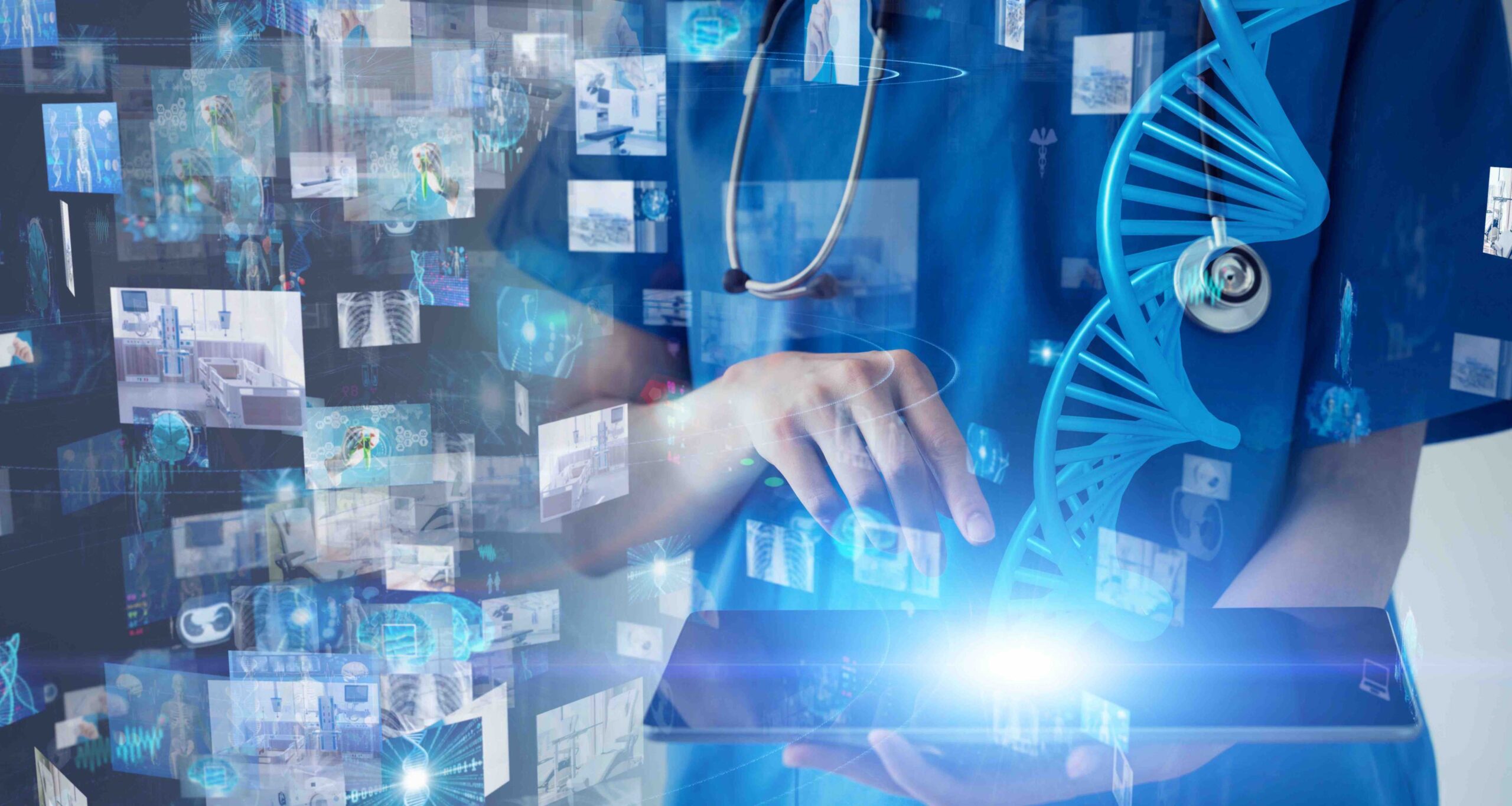The Impact of Artificial Intelligence on Healthcare: Current Trends and Future Possibilities
Artificial Intelligence (AI) has swiftly emerged as a transformative force in various industries, and perhaps nowhere is its potential more evident than in healthcare. The fusion of cutting-edge technology with medical expertise has paved the way for a revolution that promises improved patient care, enhanced diagnostics, and more efficient healthcare systems. In this article, we delve into the current trends and future possibilities of AI in healthcare, exploring how this powerful combination is reshaping the medical landscape.
Current Trends in AI Healthcare Applications
- Medical Imaging and Diagnostics: AI-powered imaging analysis is enhancing the accuracy and speed of diagnoses. Machine learning algorithms can swiftly detect anomalies in radiology images, aiding in early disease detection and prognosis. This not only accelerates the diagnostic process but also reduces the chances of human error.
- Personalized Treatment Plans: AI algorithms analyze vast patient data sets to identify patterns and correlations that can guide personalized treatment plans. Tailoring treatments based on a patient’s genetic makeup, medical history, and lifestyle factors can lead to more effective interventions and better outcomes.
- Drug Discovery and Development: AI is expediting the drug discovery process by predicting potential drug candidates and their interactions. This enables researchers to identify promising compounds and accelerate the development of new treatments.
- Remote Patient Monitoring: Wearable devices and remote sensors connected to AI systems enable real-time patient monitoring. Physicians can track vital signs, detect irregularities, and intervene promptly, even from a distance, improving patient care and reducing hospitalizations.
Future Possibilities of AI in Healthcare
- Predictive Analytics: AI’s predictive capabilities can help identify at-risk populations and potential outbreaks, aiding healthcare providers in allocating resources and planning preventive measures.
- Robot-Assisted Surgery: AI-driven robots equipped with advanced imaging and precision tools can assist surgeons during procedures, enhancing precision and reducing invasiveness.
- Natural Language Processing (NLP) in Healthcare Records: NLP algorithms can extract valuable insights from electronic health records, improving clinical documentation and enabling data-driven decision-making.
- Cognitive AI for Diagnostics: Cognitive AI systems can mimic human cognitive functions, aiding in complex diagnostics and suggesting treatment options based on vast medical knowledge.
Challenges and Considerations
While AI holds immense promise, it also presents challenges. Ensuring data privacy and security, addressing biases in algorithms, and maintaining human oversight are critical considerations to prevent potential pitfalls.
Conclusion
The marriage of AI and healthcare is poised to redefine the way we approach medicine. Current trends showcase AI’s tangible impact on diagnostics, treatment, and patient care. As technology advances, the possibilities of predictive analytics, robotic interventions, and enhanced diagnostics present a future where healthcare becomes not just more efficient, but also more patient-centric and accessible. The journey has only just begun, but the strides made so far indicate a bright future where AI and healthcare work hand in hand to improve lives.
As AI continues to revolutionize healthcare, its profound influence offers a glimpse of a future where technology and compassion converge, resulting in a healthier world for all.

Post Comment